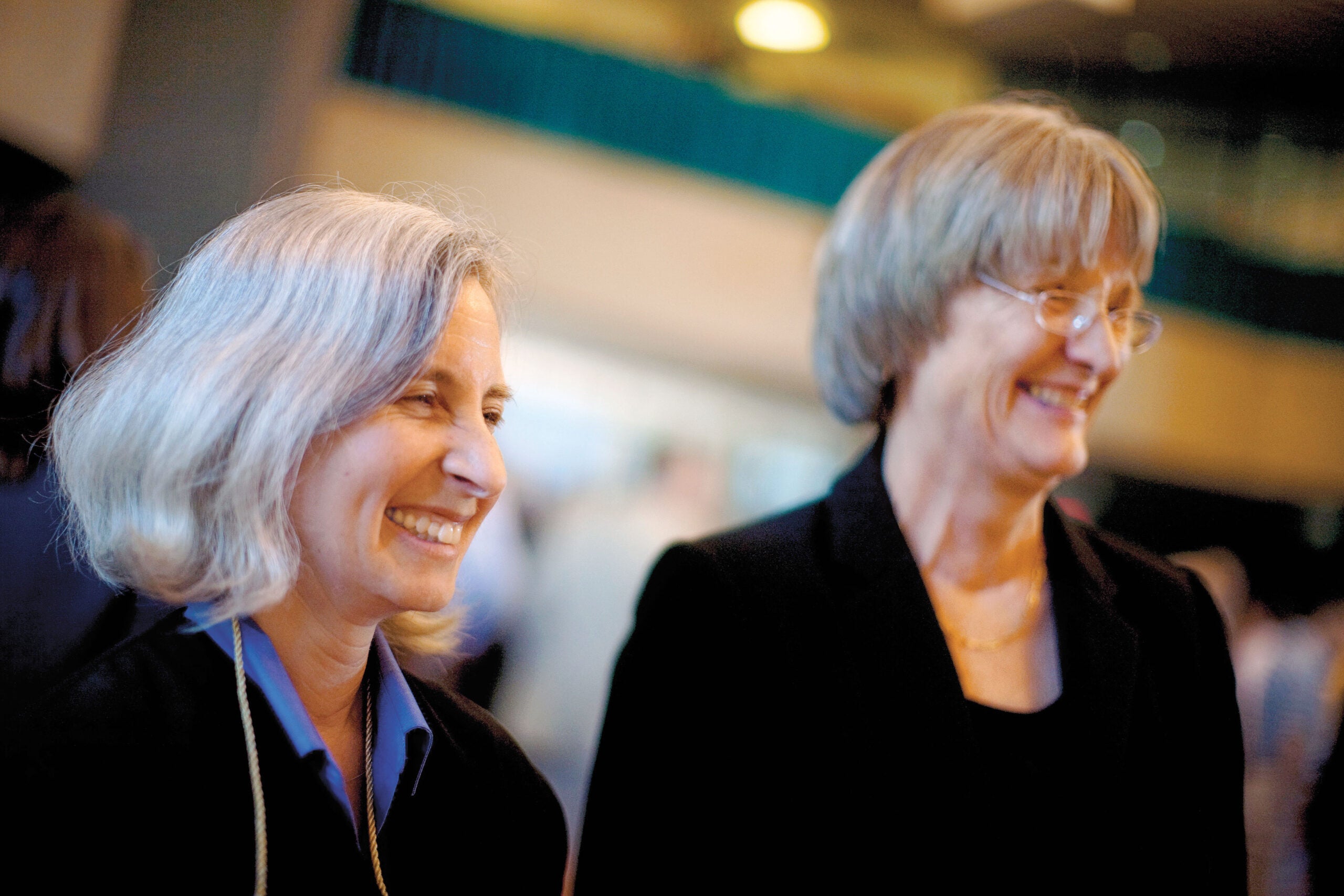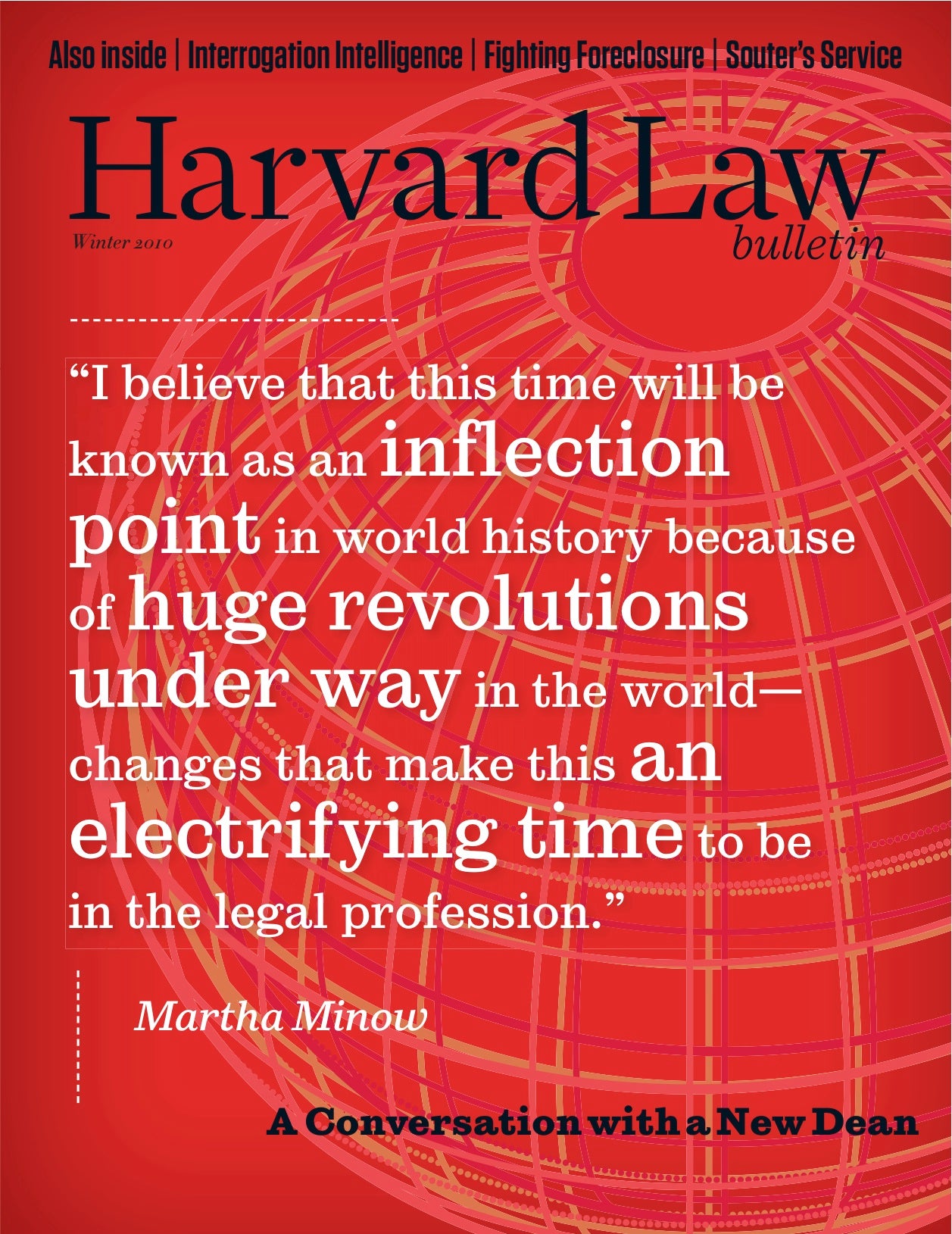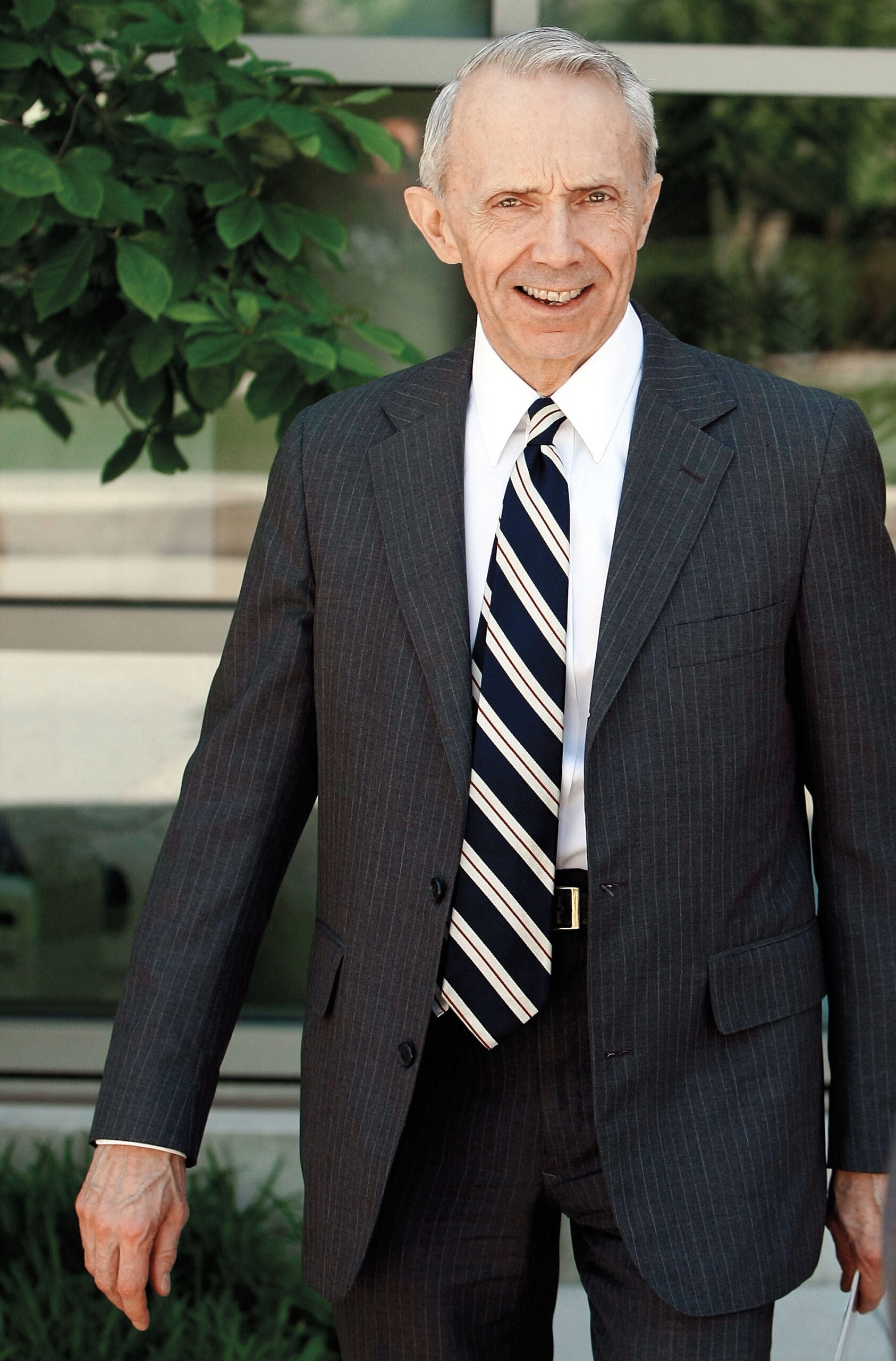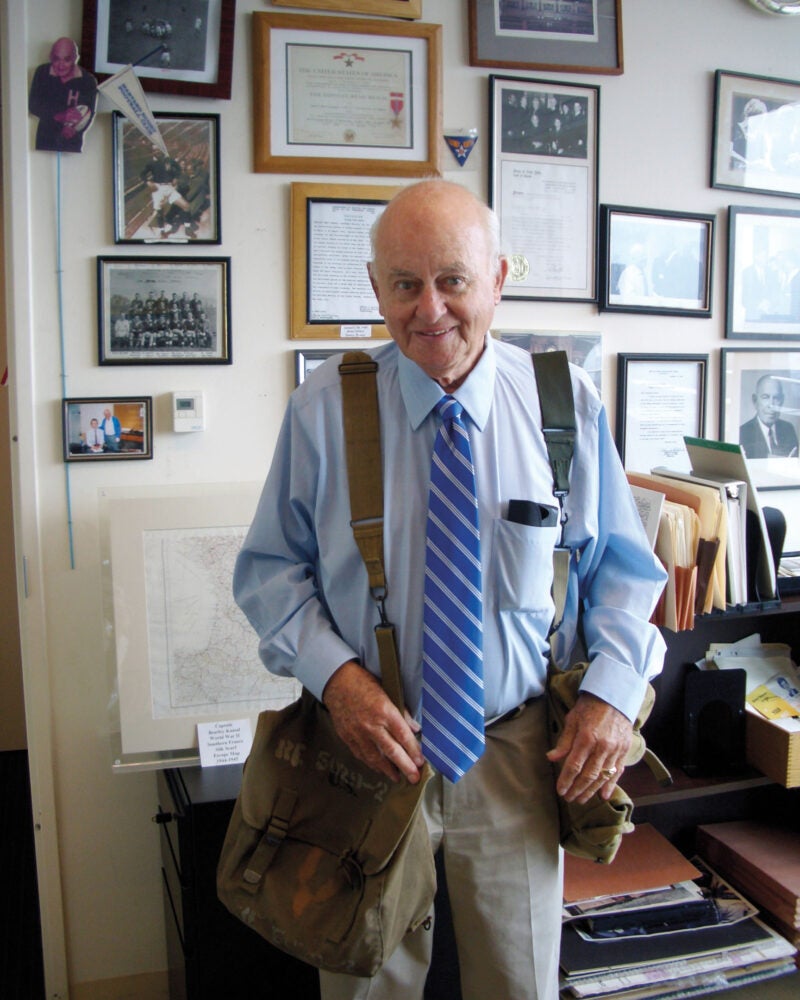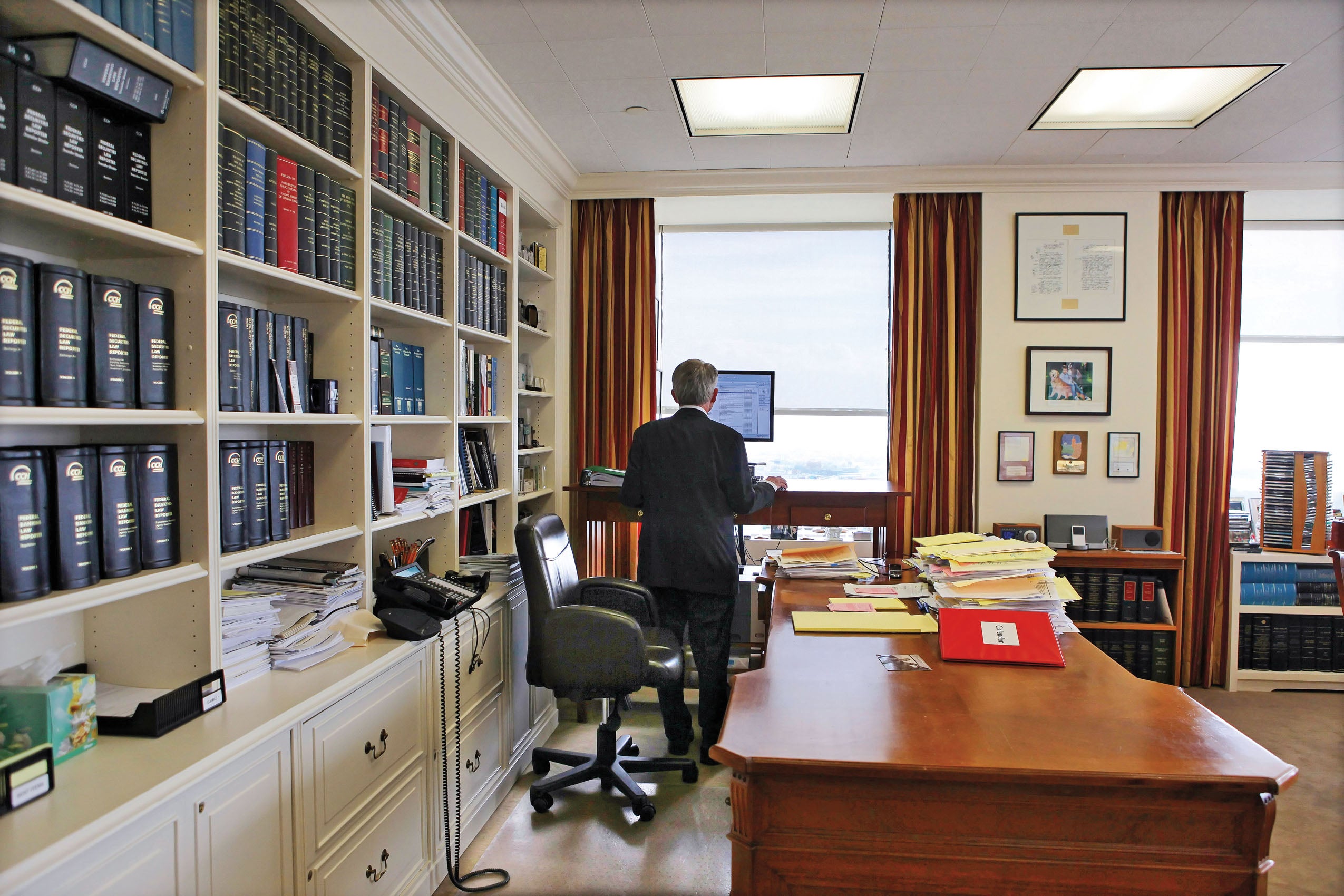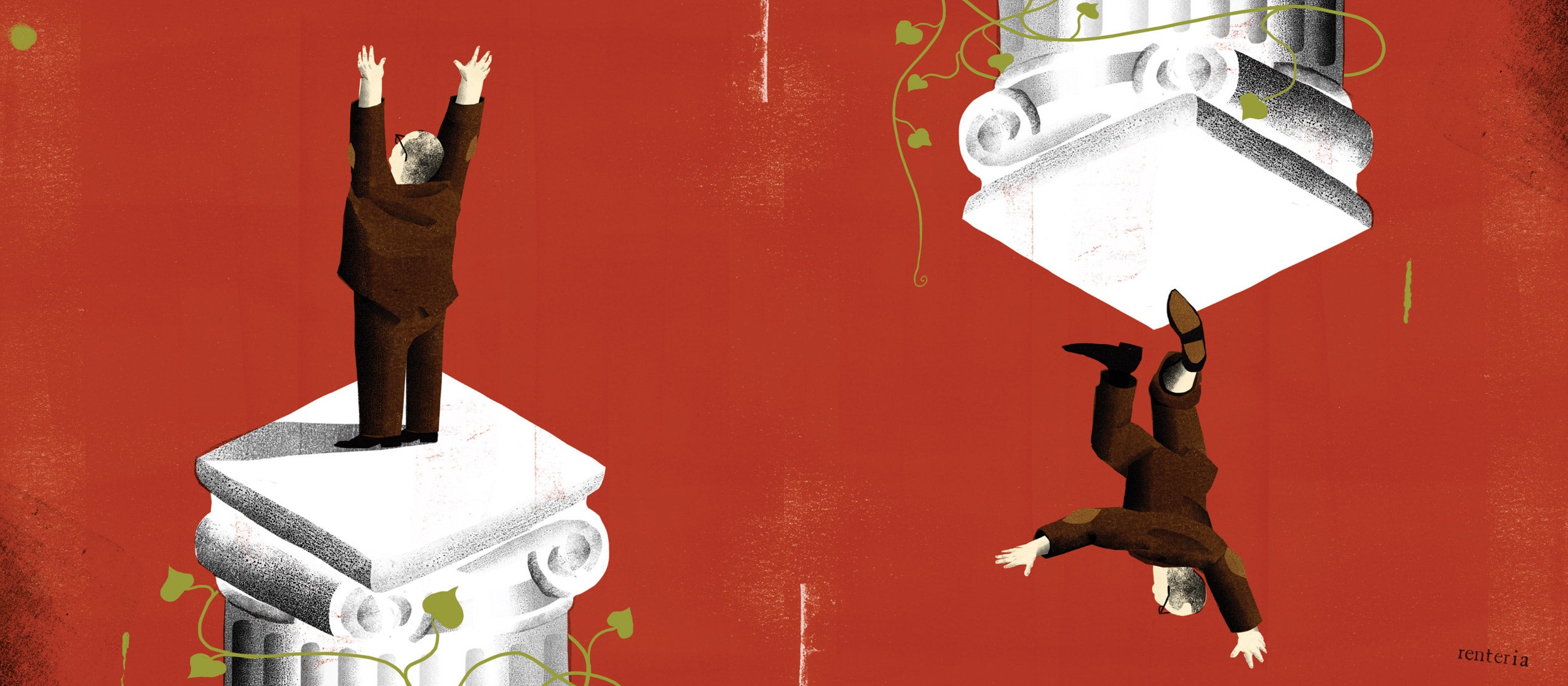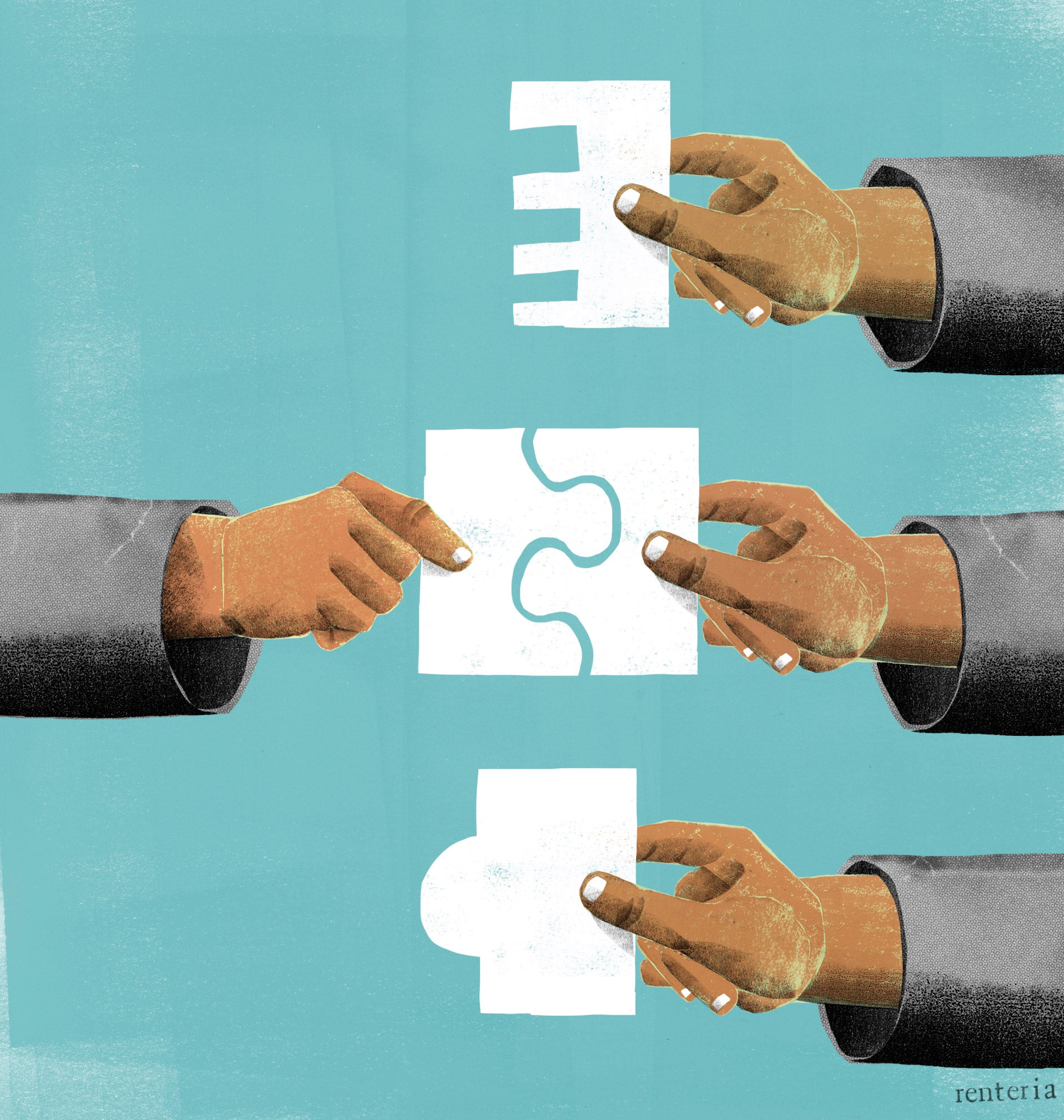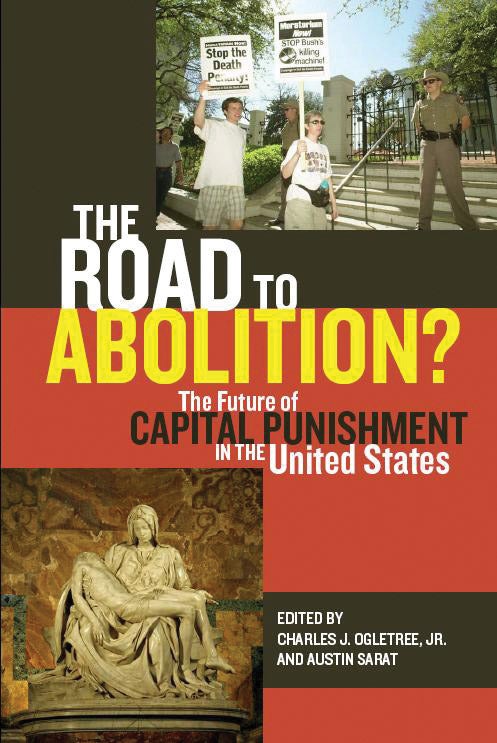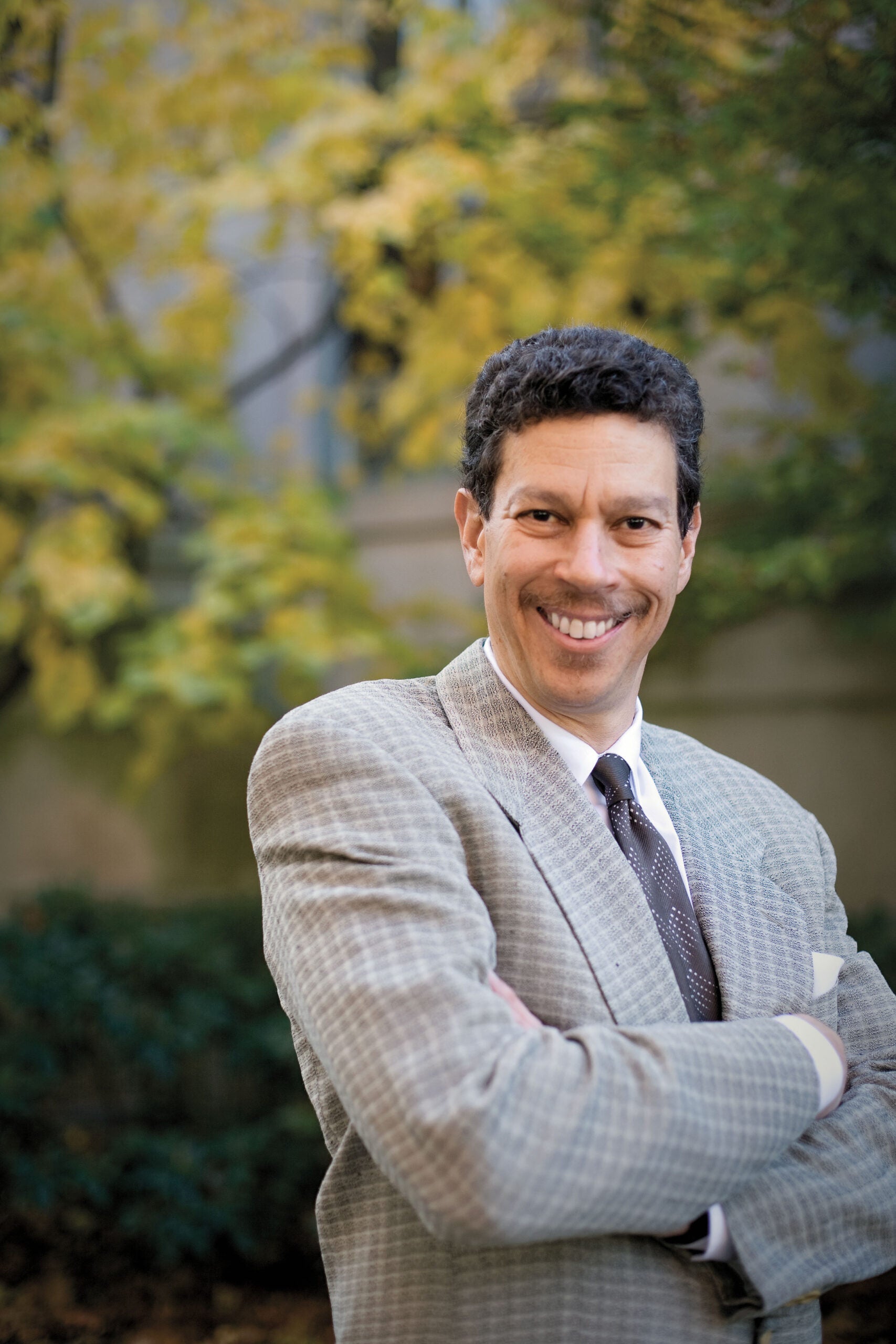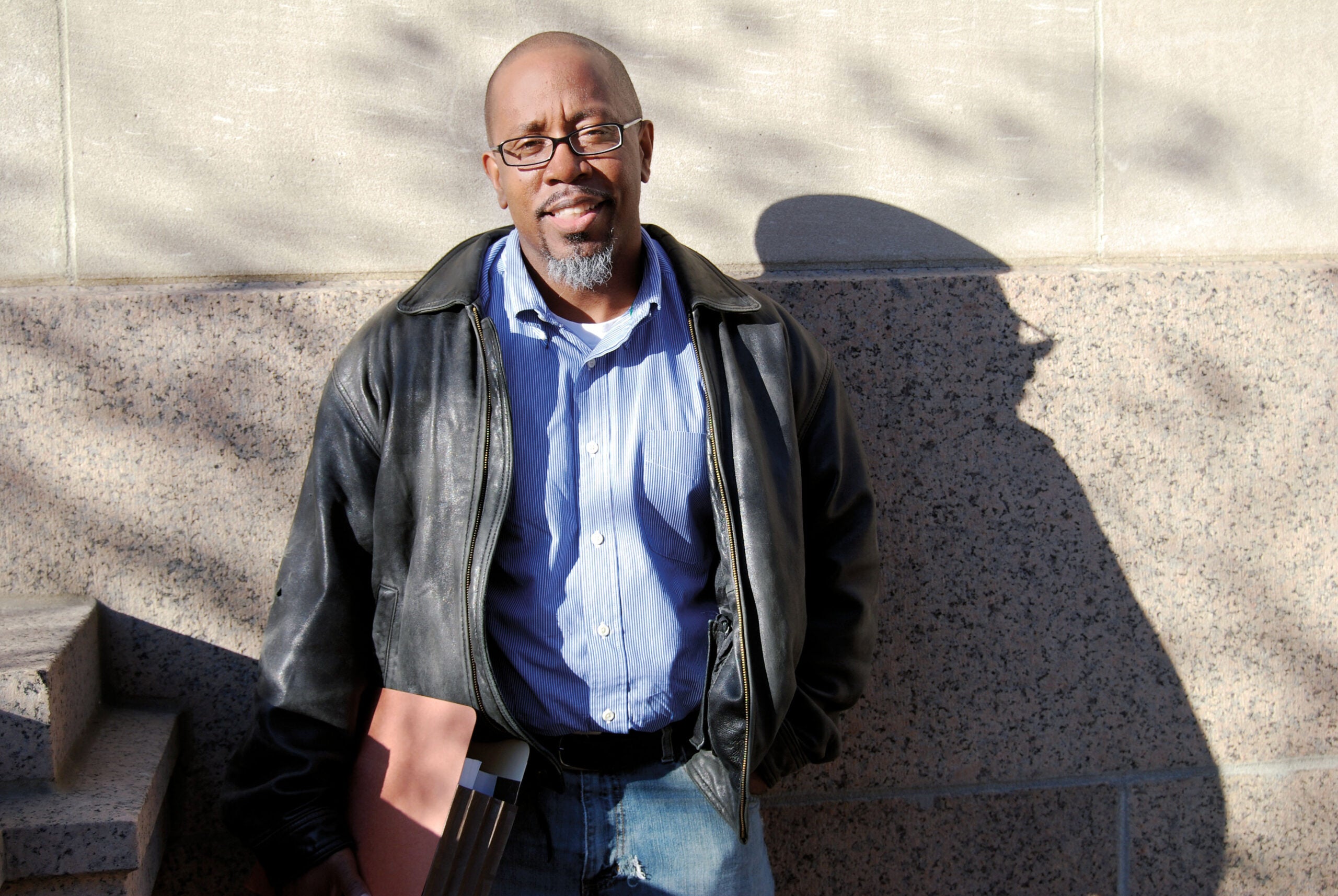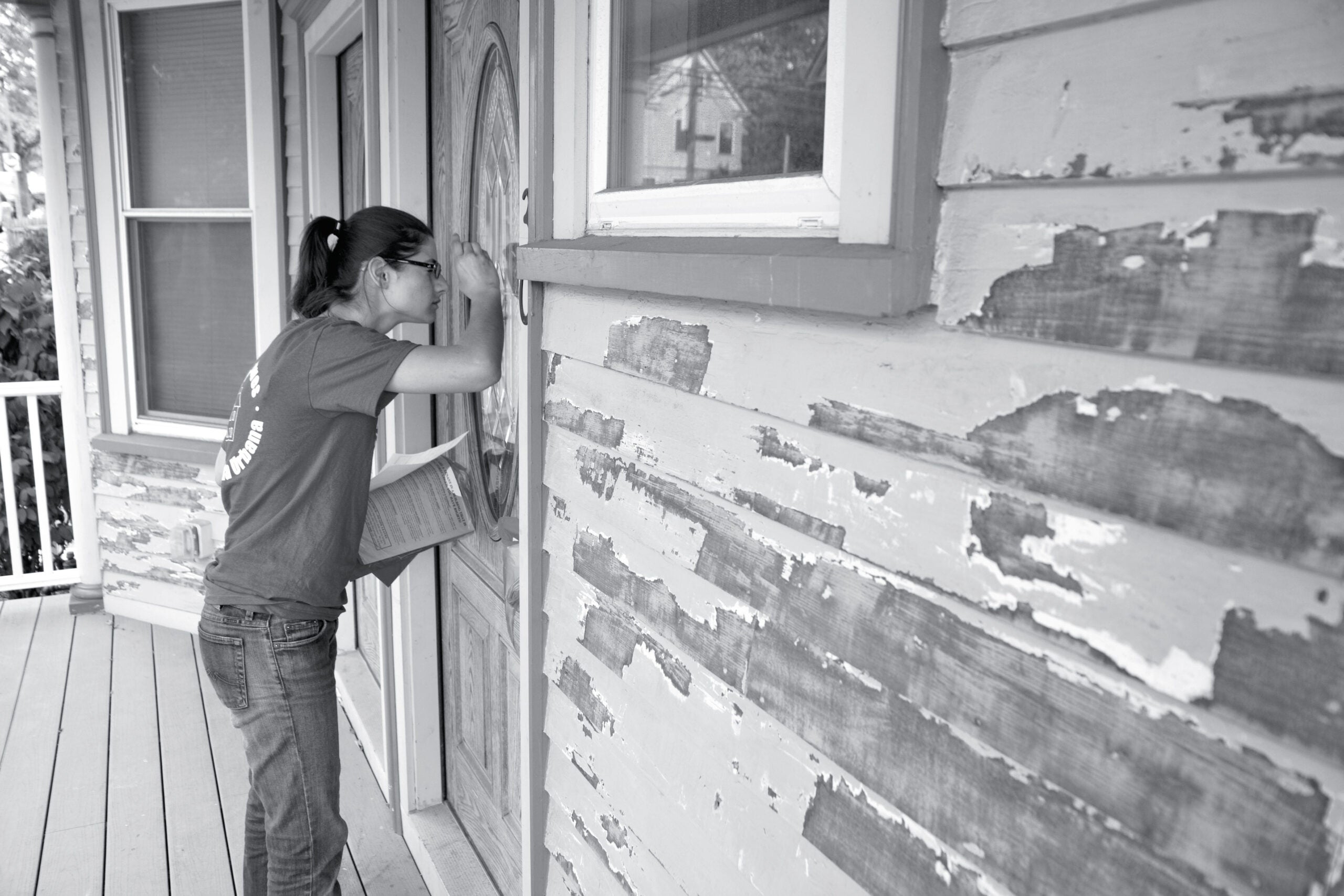The Laws of Unintended Consequences
Striving Always to Get It Right: Reflections on David Souter
Shutter Speed: 65 Years
A View from the Brink
When the U.S. financial system came excruciatingly close to collapse, Rodge Cohen was suddenly the man to call.
Writ Large: Faculty Books
-
“Stubborn as a Mule,” is set at a small liberal arts college in Maine. The school’s president, a right-wing economist, tries to unseat a Republican Senate moderate (and HLS grad).
-
In his book "Negotiauctions: New Dealmaking Strategies for a Competitive Marketplace,” Professor Guhan Subramanian says that, traditionally, academics have looked at deals through one of two lenses. One branch of research examines auction theory, with roots in game theory and microeconomics. Another looks at negotiations, combining microeconomics with experimental economics, social psychology, behavior economics and law.
-
“The Road to Abolition?: The Future of Capital Punishment in the United States” (New York University Press, 2009), edited by Professor Charles Ogletree Jr. ’78 and Austin Sarat, takes on an interdisciplinary exploration of the debate surrounding the death penalty at the turn of the 21st century.
